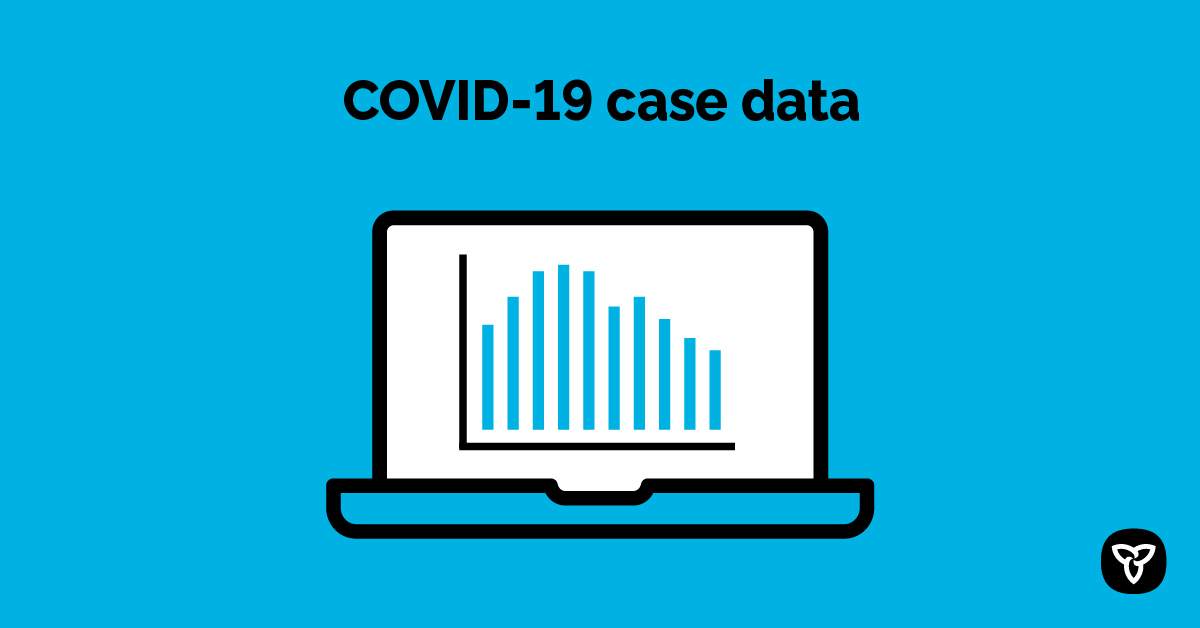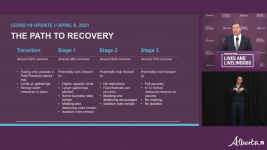OTTAWA -- The military general leading Canada’s national logistical rollout of COVID-19 vaccines is shooting down suggestions that provinces are not moving doses out of freezers and into people’s arms fast enough.

“I think provinces and territories do their very best to administer as rapidly and as effectively as possible vaccines to Canadians throughout the country, full stop,” Maj.-Gen. Dany Fortin told reporters on Thursday during the latest vaccine briefing.
“No one is holding onto vaccines in the reserve… except for local readjustments. What I would say is, and based on a lot of conversations at all levels… what we see is a real desire to ensure that they have a constant flow of vaccines.”
To-date the federal government has delivered more than 10 million vaccine doses to the provinces and territories, and according to
CTVNews.ca’s vaccine tracker, nearly 7.2 million of those shots have been administered as of Thursday afternoon.
With tens of millions more doses on the way over the next few months, the pressure is on premiers to show that they have plans in place to keep up with the supply and ensure clinics are able to administer vaccines as quickly as they can.
It was a topic of conversation between Prime Minister Justin Trudeau and his provincial and territorial counterparts Wednesday night, following a restated offer for additional support to boost regional vaccination campaigns.
Elaborating on his remarks in an interview on CTV News Channel's Power Play, Fortin said: “Looking at the pure numbers doesn't necessarily give you the complete picture,” though across Canada the rate of immunization is “trending well,” considering the scope and complexity of the mass vaccination campaign.
He said the federal government is continually updating the provinces and territories on the expected size and timing of shipments so they can make sure they have confidence more supply is coming, and so they have the health workforce in place to immunize at full capacity.
Fortin said that it’s typically taking between two and five days to deliver vaccines across the country once they arrive in Canada, with the federal government assisting in seeing the batches arrive at central locations in each region and then taken from there by the provinces and territories to be distributed to what’s become hundreds of administration sites nationwide, from mass immunization centres to local pharmacies.
“Vaccines are in constant movement across the country,” Fortin said during his press conference, offering anecdotally that he’s heard from his ongoing communication with his counterparts stickhandling the provincial vaccine distributions of instances where the weather or other circumstances like staffing saw doses have to be shifted from one community to another, only to have to move them again the next day.
“They are doing their best, their very best, to deliver through all the various locations in their jurisdiction. That last mile, all the way to the point where Canadians get immunized, is different from one jurisdiction to another, and they're doing fantastic work immunizing as effectively as possible, given all the circumstances,” Fortin said.
Asked earlier in the week whether she thought provinces and territories are vaccinating fast enough, Health Minister Patty Hajdu wouldn’t say, offering just that she thinks provinces should be immunizing as fast as possible to work through their existing and upcoming supplies quickly.
“It's hard for me to give you a general answer because of course provinces and territories have very different strategies across the country, but what I can tell you is we're watching closely and we stand ready to assist any province or territory who's having a challenge in rolling out vaccination,” Hajdu said.
The rate of vaccinations is still limited by the logistics of getting doses from the loading dock to vaccination sites, and the time lag is fluctuating with the delivery schedules, with thousands of the most recently arrived vaccine shipments still moving through that system on Wednesday.
Weighing in on the situation in his province on Tuesday, Ford told reporters that the reason hundreds of thousands of vaccine doses are still in freezers in that province is because they had just arrived.
“Over the last few days, they just literally landed on our doorstep. It takes a day for the distribution, we got it out, and we're ready to go,” he said.
Canada is set to keep increasing the number of vaccines administered weekly, accelerating with the scheduled uptick in supply of doses being delivered.
As a result, Canada has been able to move up in the global vaccination rankings after shortages and delays this winter saw the country trail behind many nations.
Canada has now given at least one shot to 17 per cent of the population, still remaining far behind the United States and the U.K., though is ahead of the four other countries in the G7.
Potentially an outcome of the widely taken approach in Canada of focusing on first shots and delaying the second by up to four months, the nation’s ranking drops to second last in the G7 when counting those who have received both shots.
With files from CTV News’ Glen McGregor






